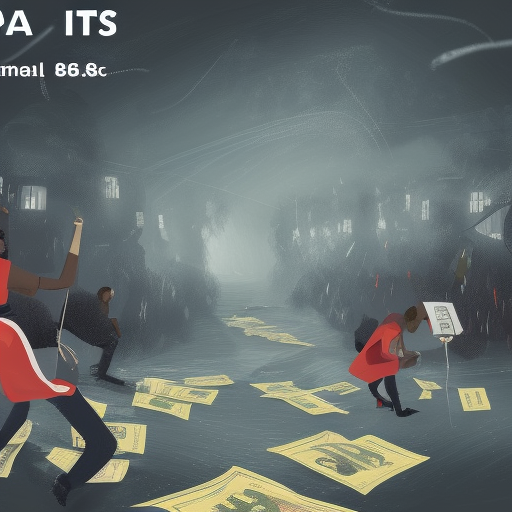
Households in two Kenyan counties were randomly assigned to receive (or not) about US$0.75 per adult per day for 2 or 12 years. Transfers began in 2018.
https://www.socialscienceregistry.org/trials/1952
At the bottom of above link is the pre-analysis plan. Local crime measured by responses of village elders to survey questions.
https://www.poverty-action.org/study/effects-universal-basic-income-kenya
2023 working paper: https://econweb.ucsd.edu/~pniehaus/papers/UBI_main_paper.pdf
If the "Long Term arm" has significantly less crime (as defined by the PAP) than the Control group, then the market resolves Yes. Otherwise, the market resolves No.
Note that if the p-value is above .05 on this test, then the results will be considered insignificant and the market will resolve No.
The market will resolve based on the first set of results released by the authors on crime that purports to be running the tests outlined in the PAP.
People are also trading
@Velaris based on test of statistical significance defined in author’s pre-analysis plan (p-value<.05 for their pre-specified test)
A paper from the NBER suggests that poverty may not necessarily cause crime https://www.nber.org/papers/w31962
@cc6 I don't see how this is related to Kenya? The paper results seem to be based on a very different premise from the Kenya UBI experiment. 1. it's based on crime convictions only on lottery winnings (which is already a very unusual way to build an argument on poverty and crime) 2. It's also based in Sweden. The author's even mention in the conclusion that these results "should not be casually extrapolated to other countries or segments of the population"
@EricBurns I understand these limitations, but the paper does provide some proof that it is not necessarily a guarantee that poverty = crime. I agree that it’s not that good of a fit for this situation and that’s why I’m not going to bet this market below 50%
@cc6 fair to the point [the market may have been overvalued] given the uncertainty of the situation. However on the note on poverty and crime there are thousands of research papers you can find on this topic - e.g. on Google Scholar - with a wide range of conclusions determinant on the experimental conditions. Perhaps a more related example - here's the first hit I get on Google Scholar with regards to Kenya poverty and crime, and it indicates there is a positive relationship between the two: https://scholar.google.fi/scholar?cluster=55636461845055143&hl=en&as_sdt=0,5#d=gs_qabs&t=1710582397673&u=%23p%3Dp4bVOBGpxQAJ.
Still agree it's difficult to make any particular assessment here with any large certainty, but seems there is a fair amount of existing literature with more comparable settings and fairly established conclusions. For instance, studies indicate hunger and petty crime are well correlated - apparently up to 85% of the UBI recipients "experienced hunger in the past year". Also, preliminary results from this Kenya UBI experiment plus many prior UBI experiments, indicate improved psycological well being. Poor physiological well being and crime is another well established correlation. None are fully indicative of conclusions, but think provide closer indication that the market is more likely to resolve yes (as long as arbitrary external events - e.g. imported terrorism or odd climate impacts - don't end up muddying the waters)
https://scholar.google.fi/scholar?hl=en&as_sdt=0%2C5&as_vis=1&q=poverty+and+crime+kenya&btnG=
@EricBurns In The Influence of poverty on crime among the Abanyole of Emuhaya district, Western Kenya the author determined that there was a relationship between the two by asking survey participants if they believed statements like "unemployed youths have the propensity to engage in criminal activities." This just confirms that most people believe that poverty causes crime, not that poverty actually causes crime.
However, what you say about a correlation between petty crime and hunger makes sense. I did not consider the fact that the poor people in the Swedish study are still wealthier than most Kenyans. I would put this at a higher probability now.
"There is a well-established negative gradient between economic status and crime, but its underlying causal mechanisms are not well understood."
The intro to the paper on the page you linked notes that there is a "well established" link between economic status and crime. The authors aren't disputing that poverty increases crime.
---
The lottery can (especially for the biggest ones) really mess people up, damaging their relationships and mental health while also giving them sudden access to things (such as unlimited drugs) they did not have and don't know how to deal with healthily.
It makes sense it would oddly correlate with things like crime or depression in ways that becoming rich more slowly and normally would not cause, in the same way that getting rich by finding a bag of cocaine and unmarked bills in the park might decrease your life expectancy even if being rich normally raises it.
The authors released a working paper recently: https://econweb.ucsd.edu/~pniehaus/papers/UBI_main_paper.pdf. The working paper does not report the crime results so I am extending the market. I added a few clarifications on the resolution criteria based on seeing the structure of the working paper.
@JoshuaAnderson Yes. There is more details on the tests they will run the PAP pdf. You can download from this link: https://www.socialscienceregistry.org/versions/76107/docs/version/document. I will follow the standard for statistical significance they use in their write-up (which I think is likely to be whether an effect is statistically significant at the 5% level). If there is an insignificant effect, the market resolves no.
@jonsimon Here is the background the authors provided “This research took place in Siaya and Bomet Counties in Kenya, which have populations of 940,000 and 860,000, respectively. Approximately 630,000 people in these counties are living below the Kenyan government’s poverty line defined as less than US$15 per household member per month for rural areas, and US$28 for urban areas”
@jonsimon Ok so 75c per day averages to $22.5 per month, right in between those two poverty line numbers. So basically you're getting payed a permanent poverty-level supplemental salary. Assuming these are individual-level poverty numbers, that would be analogous to receiving ~$14k per year in the US. Seems like for people on the edge that would be enough to make a difference?